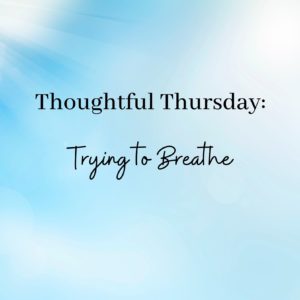Whenever some racially based fresh hell befalls a Black person we at GCP, along with so many others, are compelled to cry out. Sometimes we write about how to talk to our children about the latest horror, trying to walk that fine line between telling them the way of the world to help build their armor and scaring them so much that it shrinks their senses of themselves and their possibilities. And sometimes the weight of all of this, especially in the midst of a pandemic that is disproportionately killing black and brown people, is just too heavy to be lightened by outrage or by a focus on how to protect our kids.
So on this Thoughtful Thursday, we will try to lift this weight a bit with poetry. We turn to poets and their vision to put words to our despair and to help clarify our perspective. We begin with “4/30/92 for Rodney King” by Lucille Clifton (1936-2010), whose poem for Rodney King could easily have been written for George Floyd. Then onto “not an elegy for Mike Brown” by Danez Smith, which laments the ongoing parade of destroyed black lives. On to “What Kind of Times Are These” by Adrienne Rich (1929-2012), which speaks to the regularity of horrors on American soil.
And finally, “Respiration” by Jamaal May (b. 1982), in which he explores the importance of breathing. This Thoughtful Thursday is subtitled “Trying to Breathe”, because breathing is getting harder and harder for us to do. We can’t breathe when we catch Covid-19 because our jobs are essential and our local hospitals don’t have enough ventilators for us; we can’t breathe because a racist police officer won’t get his knee off our neck. When we escape to nature to try to breathe, some entitled Karen threatens to end us, because she feels comfortable in her power to do so.
Share these poems with your family. Use them to help you bear the weight of these times.
4/30/92 for Rodney King
so
the body
of one black man
is rag and stone
is mud
and blood
the body of one
black man
contains no life
worth loving
so the body
of one black man
is nobody
mama
mama
mamacita
is there no value
in this skin
mama
mama
if we are nothing
why
should we spare
the neighborhood
mama
mama
who will be next and
why should we save
the pictures
Lucille Clifton
not an elegy for Mike Brown
I am sick of writing this poem
but bring the boy. his new name
his same old body. ordinary, black
dead thing. bring him & we will mourn
until we forget what we are mourning
& isn’t that what being black is about?
not the joy of it, but the feeling
you get when you are looking
at your child, turn your head,
then, poof, no more child.
that feeling. that’s black.
\\
think: once, a white girl
was kidnapped & that’s the Trojan war.
later, up the block, Troy got shot
& that was Tuesday. are we not worthy
of a city of ash? of 1000 ships
launched because we are missed?
always, something deserves to be burned.
it’s never the right thing now a days.
I demand a war to bring the dead boy back
no matter what his name is this time.
I at least demand a song. a song will do just fine.
\\
look at what the lord has made.
above Missouri, sweet smoke.
Danez Smith
What Kind of Times are These?






